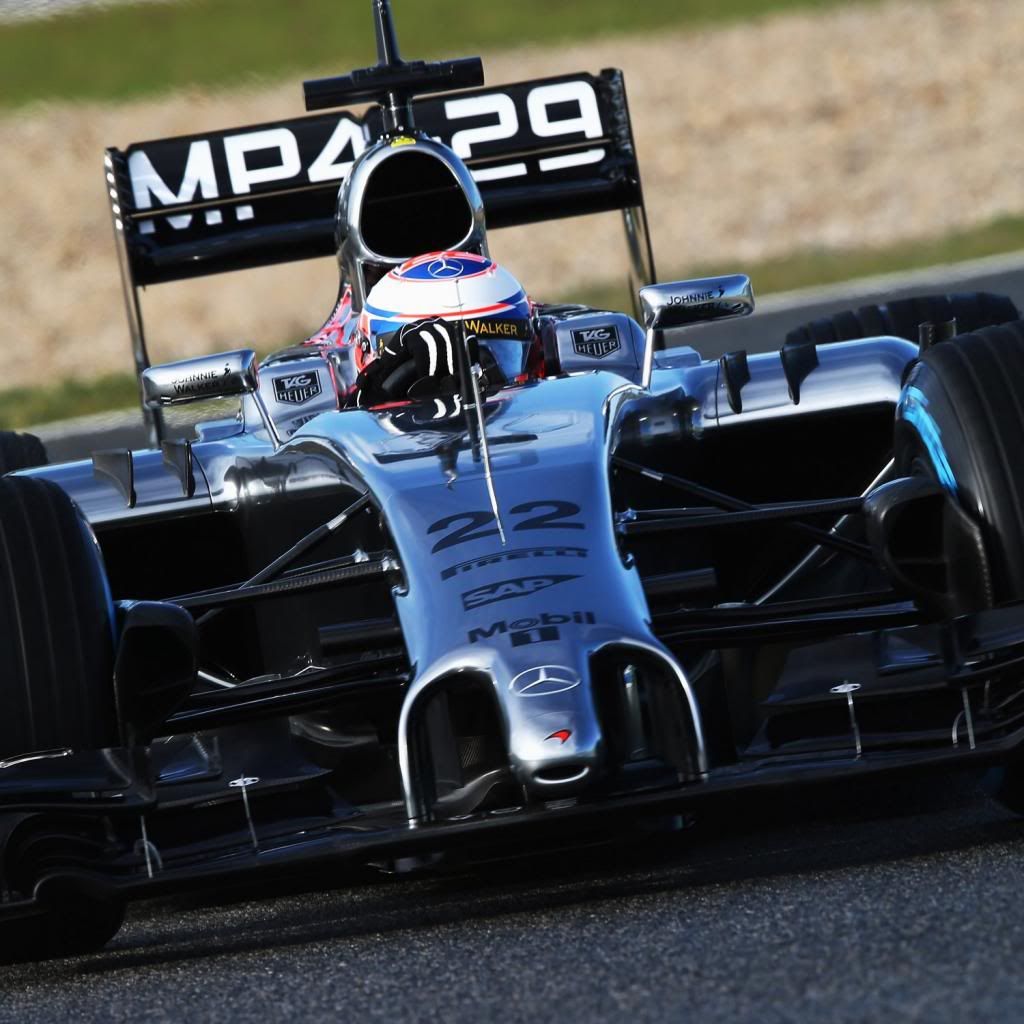Most pole positions in a season – the record in two perspectives
While it became pretty obvious early on in the season that Sebastian Vettel would probably become world champion again, a much more interesting fight was going on between Vettel and a long-retired driver: Nigel Mansell. In 1992, in the superb Williams FW14B, Nigel Mansell managed a record-breaking 14 pole positions in one season. A record no one even came really close to in the next two decades. Until 2011, when Sebastian Vettel started from pole position in 7 of the first 8 races.
At the qualifying for the 2011 Abu Dhabi Grand Prix, Sebastian Vettel finally managed to get that magic number: pole position number 14. With the race in Brazil still on the calendar, Vettel will be able to break Mansell's record, but for now, he has equalled it.

 Note #1: the number of races
Note #1: the number of races
There are two notes to this record however, the most obvious being: in 1992 there were 16 races, while Abu Dhabi is race 18 in 2011. Nigel Mansell managed 14 pole positions in just 16 races in 1992, while in 2011, it took Sebastian Vettel 18 races to get his 14th pole of the season. If you look at it purely numerically, Mansell has the better record in this. However, dismissing Vettel's equalling of Mansell's record purely on this ground, is a little short-sighted, because it also works the other way around. Juan Manuel Fangio grabbed 6 out of 8 pole positions in 1956. How many poles could he have gotten if he had 16 races like Nigel Mansell? This is not saying that such records are completely bogus; they are not. Given the circumstances of that year, these drivers managed an amazing feat, which resulted in 14 pole positions in one long season.
Note #2: the speed of the car
LINK: Table of qualifying time differentials
What I find more interesting however, is looking at which car they drove. Both the Williams FW14B and the RB7 were designed by Adrian Newey, and both were considered the fastest car of that season. Even just looking at qualifying pace however, there is an enormous difference between the dominance of the two cars over the rest of the field. While second Williams-driver Riccardo Patrese relatively easily secured second place in the championship, Mark Webber has been playing catch-up most of this year, currently being in fourth place and needing a miracle to close the 19-point gap to Jenson Button in the last two races.
But that's race pace. With Webber at least securing 3 pole positions this year, the Red Bull must have great qualifying pace right? Well, yes, they have a good qualifying pace, but the numbers don't quite show what's going on there. In 1992, the biggest difference between one of Mansell's poles and a non-Williams car was 2,8 seconds at the British Grand Prix, while the Williams was only not the fastest average car in 2 qualifyings. In 1992, the biggest difference between one of Vettel's poles and a non-Red Bull car was 0,8 seconds at the Australian Grand Prix, while the Red Bull was not the fastest average car in 7 qualifyings.
In 1992, Nigel Mansell's average qualifying time was 1.1 seconds faster than the nearest non-Williams driver. In 2011, Sebastian Vettel's average qualifying time is only 0.2 seconds faster than the nearest non-Red Bull driver, who is more often than not in front of Webber. In 1992, the average qualifying time of the Williams team was 0.97 seconds faster, while in 2011, the average qualifying time of the Red Bull team is only 0.16 seconds faster. The advantage of Nigel Mansell's Williams was 6 times greater than that of Sebastian Vettel's Red Bull. If Mansell made a mistake, he could still train pole position, while a mistake on Vettel's end could have most often cost him that pole.
In conclusion
Working with statistics, means working with variables and margins. It is common that some tracks are better suited to a car than others, whether it's 1992 or 2011. Simply saying: Mansell only took 16 races, thus his record is worth more, is missing the bigger picture. Had the British and German Grand Prix for instance been raced at the end of the season, Vettel would have had 14 out of 16. Had Nigel Mansell's season been 18 races long (where we're at now), and there were two races in the middle of the season that didn't suit him, he would have had the same result as Vettel. With just two races difference in a sport where every track means a different advantage or disadvantage, it is statistically irrelevant to say that Mansell's record is worth more because of the number of races.
If anything, Vettel's record could be considered worth more because he did not have the massive advantage that Mansell had over the other cars. The Red Bull was never 3 seconds faster in qualifying than the McLaren or the Ferrari, as it often came down to a few tenths at most. The Williams FW14B was lightning fast at every track, while Vettel managed pole positions at a number of tracks where the Red Bull was not the fastest car. Nigel Mansell managed 14 pole positions in 1992 because he could afford to make mistakes. Sebastian Vettel managed 14 pole positions in 2011 because he never made a mistake.




